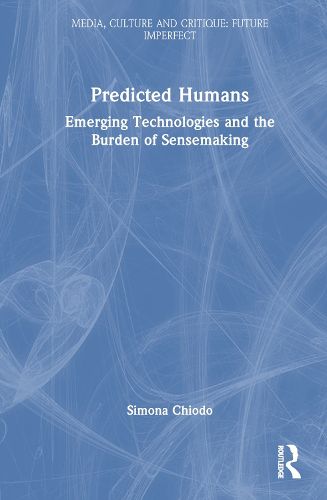Readings Newsletter
Become a Readings Member to make your shopping experience even easier.
Sign in or sign up for free!
You’re not far away from qualifying for FREE standard shipping within Australia
You’ve qualified for FREE standard shipping within Australia
The cart is loading…






Predicting our future as individuals is central to the role of much emerging technology, from hiring algorithms that predict our professional success (or failure) to biomarkers that predict how long (or short) our healthy (or unhealthy) life will be. Yet, much in Western culture, from scripture to mythology to philosophy, suggests that knowing one's future may not be in the subject's best interests and might even lead to disaster. If predicting our future as individuals can be harmful as well as beneficial, why are we so willing to engage in so much prediction, from cradle to grave?
This book offers a philosophical answer, reflecting on seminal texts in Western culture to argue that predicting our future renders much of our existence the automated effect of various causes, which, in turn, helps to alleviate the existential burden of autonomously making sense of our lives in a more competitive, demanding, accelerated society. An exploration of our tendency in a technological era to engineer and so rid ourselves of that which has hitherto been our primary reason for being - making life plans for a successful future, while faced with epistemological and ethical uncertainties - Predicted Humans will appeal to scholars of philosophy and social theory with interests in questions of moral responsibility and meaning in an increasingly technological world.
$9.00 standard shipping within Australia
FREE standard shipping within Australia for orders over $100.00
Express & International shipping calculated at checkout
Predicting our future as individuals is central to the role of much emerging technology, from hiring algorithms that predict our professional success (or failure) to biomarkers that predict how long (or short) our healthy (or unhealthy) life will be. Yet, much in Western culture, from scripture to mythology to philosophy, suggests that knowing one's future may not be in the subject's best interests and might even lead to disaster. If predicting our future as individuals can be harmful as well as beneficial, why are we so willing to engage in so much prediction, from cradle to grave?
This book offers a philosophical answer, reflecting on seminal texts in Western culture to argue that predicting our future renders much of our existence the automated effect of various causes, which, in turn, helps to alleviate the existential burden of autonomously making sense of our lives in a more competitive, demanding, accelerated society. An exploration of our tendency in a technological era to engineer and so rid ourselves of that which has hitherto been our primary reason for being - making life plans for a successful future, while faced with epistemological and ethical uncertainties - Predicted Humans will appeal to scholars of philosophy and social theory with interests in questions of moral responsibility and meaning in an increasingly technological world.